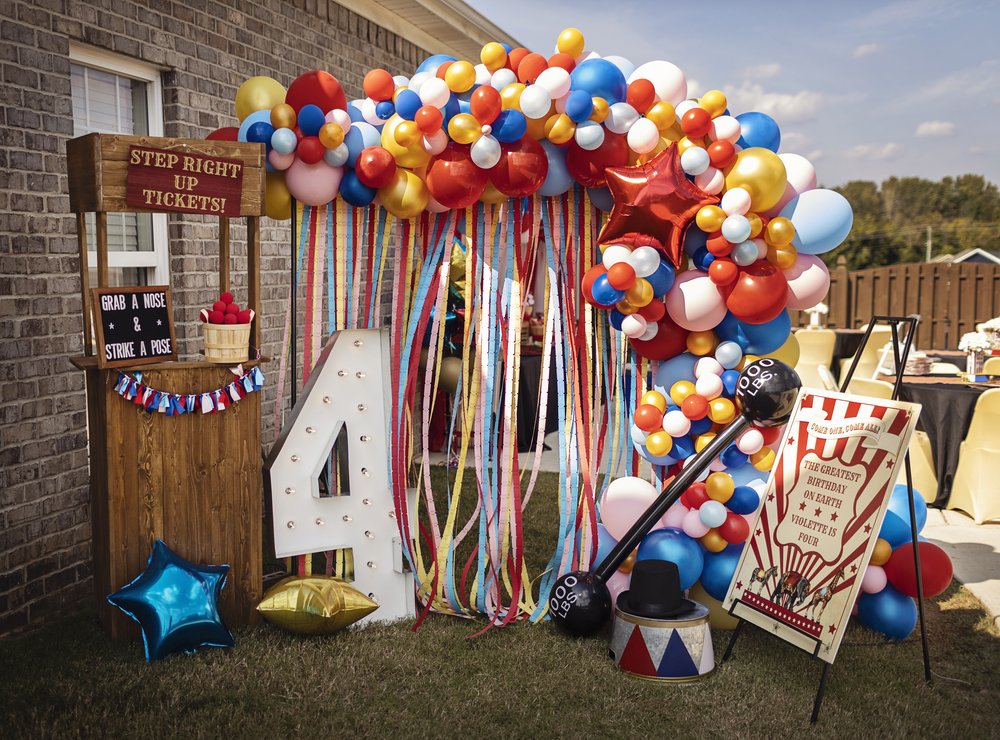
Planning a successful corporate event requires careful attention to detail and strategic execution. From choosing the perfect venue to creating networking opportunities, there are eight essential techniques that can make a significant impact on the overall success of your event.
In this article, we will explore these must-have techniques, providing you with the knowledge and insights needed to plan and execute a seamless corporate event that leaves a lasting impression on attendees.
Venue Selection
In the realm of corporate event planning, venue selection plays a pivotal role in creating a successful and memorable experience for attendees. The venue location sets the tone and ambiance for the entire event, and it is crucial to choose a location that aligns with the event theme and objectives.
When considering venue options, event planners must carefully evaluate the available event space options. This includes assessing the capacity of the venue to accommodate the expected number of attendees, the layout and design of the space, the availability of necessary amenities and facilities, and the overall suitability for the planned activities.
Corporate Theme Integration
After carefully selecting the venue, event planners must seamlessly integrate the corporate theme into every aspect of the event to create a cohesive and impactful experience for attendees. Corporate branding plays a crucial role in this process, as it helps to establish a strong and consistent visual identity that aligns with the company's values and objectives.
From the event's logo and promotional materials to the decor and overall ambiance, every element should reflect the corporate theme and reinforce the brand message.
Additionally, creating immersive experiences can further enhance the event's impact. This can be achieved through interactive displays, themed activities, and innovative technology solutions that engage attendees and leave a lasting impression.

Entertainment Choices
To enhance the overall experience of a corporate event, careful consideration must be given to the selection of entertainment options. The entertainment choices can greatly impact the atmosphere, engagement, and enjoyment of the attendees. Here are four key factors to consider when choosing entertainment for a corporate event:
Live Performances: Hiring live performers such as musicians, comedians, or dancers can create a vibrant and energetic atmosphere, captivating the audience and leaving a lasting impression.
Interactive Experiences: Incorporating interactive elements like photo booths, gaming stations, or virtual reality experiences can encourage attendees to actively participate and engage with the event, fostering a sense of excitement and connection.
Variety: Offering a diverse range of entertainment options ensures that there is something for everyone, catering to different tastes and preferences among the attendees.
Customization: Tailoring the entertainment choices to align with the event's theme or objectives can create a cohesive and immersive experience, enhancing the overall impact and relevance of the entertainment.
The next crucial aspect to consider in corporate event planning is the thoughtful selection and planning of the menu, ensuring a satisfying and memorable dining experience for attendees.
When it comes to menu planning, it is important to offer a variety of culinary options to cater to different tastes and dietary accommodations. Start by identifying the preferences and dietary restrictions of your guests, such as vegetarian, gluten-free, or vegan options.

Collaborate with a professional caterer to curate a menu that reflects the theme and style of your event, while also considering the seasonality and availability of ingredients. Additionally, be mindful of portion sizes to avoid wastage and ensure that the presentation of the dishes is visually appealing.
Decor Ideas
When considering decor ideas for a corporate event, it is essential to create an atmosphere that aligns with the event's theme and enhances the overall ambiance. Incorporating the latest decor trends can help make the event visually appealing and memorable.
Here are some creative centerpieces that can elevate the decor of a corporate event:
Floral arrangements: Opt for unique flower combinations and arrangements that reflect the event's theme. Consider using unconventional vases or containers to add a touch of creativity.
Lighting effects: Utilize different lighting techniques, such as uplighting or string lights, to create a captivating ambiance. Lighting can significantly impact the mood and atmosphere of the event.
Customized signage: Incorporate personalized signage with the company logo or event theme to add a professional touch and reinforce brand identity.
Themed props: Use themed props that are relevant to the event's purpose or industry. This can create a cohesive and immersive experience for attendees.

Networking Opportunities
Networking opportunities are crucial for corporate events as they allow participants to connect, collaborate, and build relationships.
To make these opportunities more effective, event planners can incorporate engaging icebreaker activities that encourage attendees to interact and break the ice.
Additionally, strategic matchmaking sessions can be organized where participants are paired based on their interests and goals, facilitating meaningful connections and potential business collaborations.
Engaging Icebreaker Activities
Engaging icebreaker activities provide valuable opportunities for professionals to connect and establish meaningful connections at corporate events. These activities serve as a catalyst for breaking the ice and creating a comfortable atmosphere for networking. Here are four interactive icebreaker activities that can enhance team building and encourage networking:
Speed Networking: Participants engage in a series of short, timed conversations to quickly exchange information and make connections.
Two Truths and a Lie: Individuals share two true statements and one false statement, allowing others to guess which is the lie, sparking conversation and laughter.
Human Bingo: Participants mingle and find people who match specific characteristics on their bingo cards, promoting interaction and discovery of shared interests.

Group Games: Interactive games like charades or Pictionary can encourage collaboration, communication, and laughter, fostering connections among professionals.
Strategic Matchmaking Sessions
At corporate events, one effective way to facilitate meaningful connections among professionals is through the implementation of strategic matchmaking sessions.
These sessions provide attendees with opportunities to network and form strategic partnerships with like-minded individuals in their industry. By carefully matching participants based on their professional interests, goals, and expertise, event planners can ensure that these sessions are productive and valuable for all involved.
Strategic matchmaking sessions not only encourage attendee engagement but also create a platform for professionals to explore potential collaborations and business opportunities. This structured approach to networking allows participants to maximize their time at the event by connecting with individuals who can offer complementary skills and resources.
Ultimately, strategic matchmaking sessions enhance the overall experience of corporate events by fostering meaningful connections and facilitating the growth of professional networks.
Event Timeline
Creating an effective event timeline is crucial for the success of corporate events. Scheduling ensures that all necessary tasks and activities are completed in a timely manner, allowing for efficient event management.
Managing event logistics involves coordinating various aspects such as venue setup, audiovisual equipment, and catering, ensuring a smooth and seamless experience for attendees.

Importance of Scheduling
With a well-structured and meticulously planned event timeline, corporate event planners can ensure seamless coordination and timely execution of all program components. Scheduling plays a crucial role in the success of any corporate event, as it helps in keeping things organized and on track.
Here are four reasons why scheduling is of utmost importance:
Efficient use of time: A well-planned schedule allows for efficient use of time, ensuring that every activity is allocated the appropriate amount of time.
Avoiding conflicts: By scheduling different activities and sessions, event planners can ensure that there are no conflicts or overlaps, allowing attendees to participate in all relevant sessions.
Smooth transitions: A detailed timeline enables smooth transitions between different parts of the event, preventing any delays or confusion.
Flexibility: A well-thought-out schedule allows for flexibility in case of unforeseen circumstances, allowing event planners to make necessary adjustments without disrupting the overall flow.
Managing Event Logistics
To effectively manage the event logistics, planners must develop a comprehensive and well-structured event timeline. This timeline serves as a roadmap for the entire planning process, allowing planners to coordinate various aspects of the event seamlessly.

Event coordination entails managing every detail, from venue setup to catering arrangements, ensuring that everything runs smoothly on the day of the event. A well-designed event timeline allows planners to allocate time for each task, ensuring that nothing is overlooked or rushed.
Additionally, transportation logistics must be carefully considered in the event timeline. This includes arranging transportation for attendees, speakers, and VIP guests, as well as coordinating parking and shuttle services.
Ensuring Smooth Transitions
To ensure seamless transitions throughout the event, event planners must carefully coordinate the timing and execution of each task in the event timeline. Transition management is a crucial aspect of event planning, as it ensures that there are no disruptions or delays during the event.
Here are four key techniques to ensure a seamless execution:
Develop a detailed event timeline: Create a comprehensive schedule that outlines every task, from setup to teardown, to ensure that each transition is accounted for.
Assign responsibilities: Clearly designate who is responsible for each task in the timeline to ensure that there is no confusion or overlap.
Communicate effectively: Maintain open lines of communication with all stakeholders, including vendors, staff, and attendees, to ensure that everyone is aware of the timeline and their role in the transitions.

Build in buffer time: Allow for extra time between tasks to account for unforeseen circumstances or delays, ensuring a smooth transition even in the face of unexpected challenges.
Budget Management
Effective budget management is an essential aspect of successful corporate event planning, ensuring financial resources are allocated efficiently and maximized for optimal outcomes. Cost control and financial planning play a crucial role in maintaining financial stability while organizing a corporate event.
To effectively manage the budget, event planners need to carefully consider all expenses associated with the event, including venue rental, catering, transportation, and marketing. Creating a detailed budget plan that accounts for both fixed and variable costs is essential. It is important to negotiate with vendors to secure the best possible rates and explore cost-saving measures without compromising on the quality of the event.
Regular monitoring and tracking of expenses throughout the planning process will help identify any deviations from the budget and allow for adjustments to be made as necessary. By prioritizing budget management, event planners can ensure that financial resources are used wisely, resulting in a successful and memorable corporate event.
Frequently Asked Questions
When it comes to promoting corporate events and ensuring maximum attendance, there are several key tips to consider. From leveraging social media platforms to utilizing targeted marketing strategies, effective promotion is crucial for increasing attendance.
Event planners can enhance the overall experience for attendees by incorporating technology and digital tools. This can include digital engagement strategies, such as interactive apps and social media integration, as well as incorporating virtual reality to create immersive and engaging experiences.
Are There Any Unique and Creative Ways to Incorporate Team-Building Activities Into a Corporate Event?
Unique team building activities and creative corporate event ideas can be incorporated into a corporate event to foster teamwork, collaboration, and engagement among attendees. These activities can range from outdoor adventures to interactive workshops, ensuring a memorable and impactful experience.

What Are Some Strategies for Managing Registration and Check-In Processes Smoothly and Efficiently?
Efficient registration and streamlined check-in processes are crucial for managing corporate events smoothly. Implementing online registration systems, utilizing barcode scanning technology, and having a well-trained registration team can ensure a seamless experience for attendees.
How Can Event Planners Ensure a Seamless Transition Between Different Segments or Activities During the Event?
To ensure seamless transitions and a smooth event flow, event planners should carefully plan and coordinate different segments or activities. This involves creating a detailed timeline, coordinating with all stakeholders, and implementing effective communication strategies.
 Kids Art ProjectsParty PlanningPaper CraftsOrigami for KidsPrivacy PolicyTerms And Conditions
Kids Art ProjectsParty PlanningPaper CraftsOrigami for KidsPrivacy PolicyTerms And Conditions
